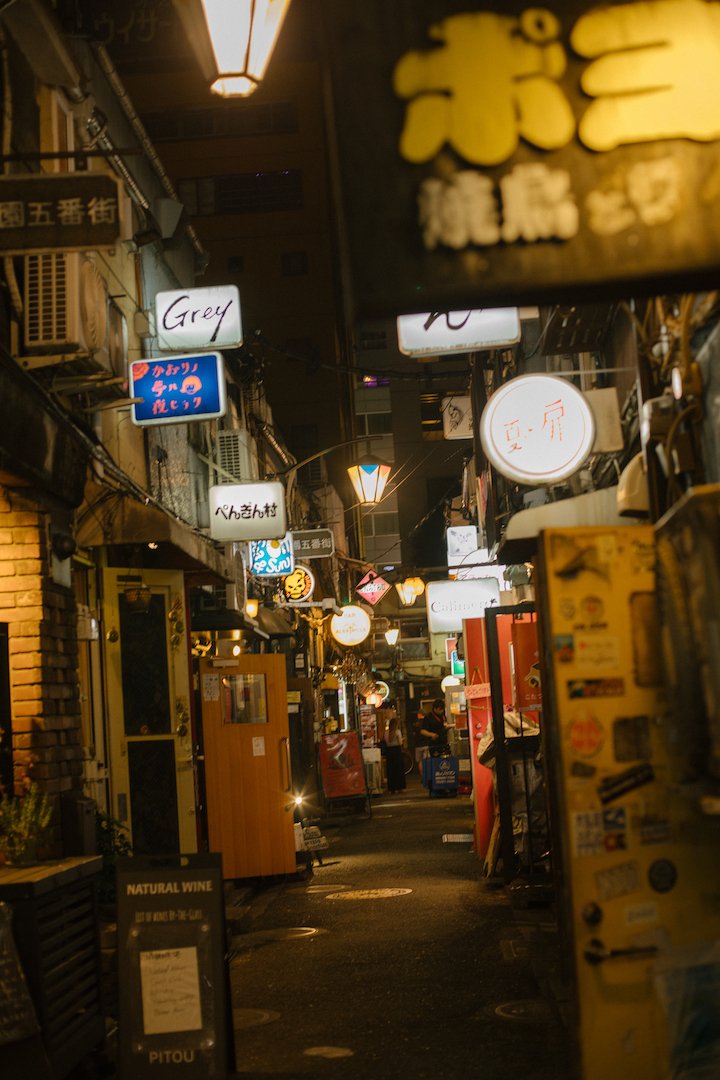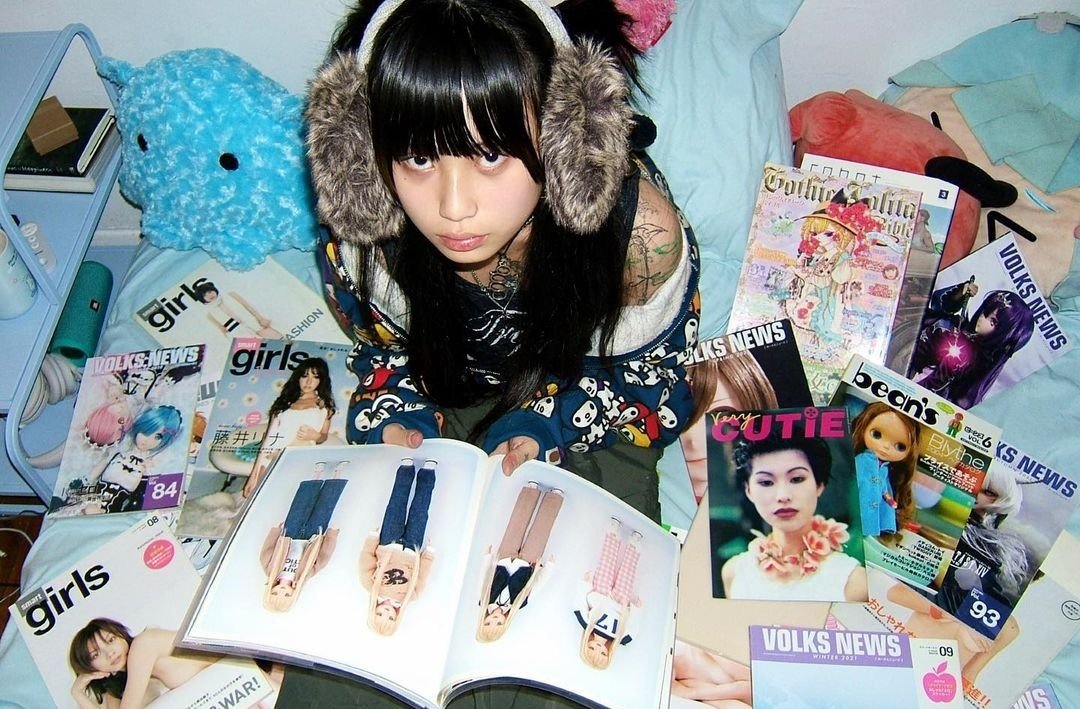How A Book Publisher Started An Olive Oil Empire: An Interview with Theophil0s Constantinou

Theophilos Constantinou [@psycheorganic] when he decides to do something, does it exceedingly well no matter the genre.
Theo first made a name for himself through PARADIGM, his NYC-based publishing company with a cult following, publishing over 45+ limited release books from this generation's best artists. But just when he was at the top of his career, Theo had a series of revelations. He took a step back from the publishing scene, dedicating himself to something very unexpected: olive oil via his brand PSYCHE ORGANIC [@psycheorganic].
Of course in standard Theo fashion, PSYCHE ORGANIC isn’t the yawn-inducing stuff lying dusty at the back of your shelf, but rather clean and sustainable oil made with a bit of an artist's touch.
Olive oil, despite being a staple food, is paradoxically one of the most “dishonest” products out there, rife with misleading labels, quality control issues, tricky adulterations, plus a lack of respect for the cultivators who work hard to grow the crop.
Luckily, Theo wants to rectify these ills through his brand PSYCHE ORGANIC based out of Copenhagen, simply described as gourmet sustainable olive oil made with a bit of an artist's touch. In his own words, he's “delivering health” while having a transparent supply chain and personal relationships with local farmers.
Far before Theo branched out to his olive oil endeavors, he was living in New York for over 5 years, making things, and acting as an unofficial focal point for new artists of all stripes. He held a reputation as someone with an open mind and an open door via the gatherings at his Lower East Side apartment; where creatives would meet and talk shop.
Many of his friendships with artists, grew into partnerships; resulting in art books of their work being published through PARADIGM, ranging from experimental titles like Reginald Sylvester II’s Nemesis to the company’s last publication Proof of Existence with Jakob Heltzer.
From olive oil to niche art books, Theo brings his creative philosophy of doing everything with intention and for the good of the broader community. That being said, he’s always cooking up new projects fusing these two concepts, whether it be pop ups at various restaurants incorporating PSYCHE ORGANIC, and a collaboration with Nanamica and Anthony Jamari Thomas titled “Slow Collapse” that infuses poetry, photography, collages, and essays, to be released later this year.
Theophilos spoke with sabukaru about everything from anarchist farmers, ego death, and the power of community.
Hey Theophilos, thanks for chatting with us. For those who are first hearing about you, how would you describe yourself and what you do to the sabukaru network?
I am a Greek-Cypriot American,living in Copenhagen, Denmark. Previously I resided in the Lower East Side of Manhattan. I am a photographer, former book publisher, music selector and seeker. I used to run the brand PARADIGM and published my final book PROOF OF EXISTENCE with artist Jakob Hetzer earlier this year. I have officially closed that business and now import and export olive oil, under the brand name PSYCHE ORGANIC.
You’ve made some big transitions in your creative career, by first founding PARADIGM in NYC an influential independent publisher of art books and then switching to your own artisanal olive oil brand PSYCHE ORGANIC in 2020. What drove such a big career shift?
COVID-19 was the impetus for the career shift. I had no intention of changing my career prior to the pandemic. My life and practice in NYC were thriving at that time. It was at the beginning of lockdown when I found that my life was malleable to the point where I was drifting from my love for PARADIGM. Fate led me to farm in Greece in the summer of 2020. The farmer who I met changed my perspective on what was possible for one's life. Those moments of clarity on the farm, allowed the space to consider shifting my entire career from publishing to importing / exporting and building a business around olive oil.
What was PARADIGM all about? And what were some of your favorite projects you got involved with?
PARADIGM was about staying true to a philosophy. Breaking down norms, shifting the paradigm around publishing. Making high quality objects with intention and soul. Giving artists the space to be themselves, fully. No rules, no boundaries.
My favorite projects were:
Even if bringing PARADIGM to a close was by your own choice, there must be some “ego death” involved with that. How did you cope with its aftermath, did you find yourself changing as a person?
Initially, the ideas about my own ego death tripped me out more than the actual “death” itself. Because my mind and spirit had another focus [running PSYCHE and moving to Copenhagen] the transition was less difficult. The most challenging part change was going from the chaos of NYC to the quiet of Copenhagen.
In terms of changing as a person, I went from being a downtown fixture creating art to living on an entirely new continent in a country that is adverse to outsiders. I didn’t change, I evolved. The pace of Copenhagen calmed me. If anything it sharpened my hustle and allowed me to focus away from all the noise and bright lights of NYC.
Theo and friends.
It seems like you’ve formed a strong creative community, which is necessary to find the kinds of people you want to celebrate in PARADIGM’s books. What were your beginning steps in forming ongoing connections within NYC’s creative scene?
My first steps in forming ongoing connections within NYC’s creative scene were staying busy in the streets. So much of NYC life is lived outside in the open theater. It is where I met all of the people I collaborated and built friendships with. Showing up. Engaging. Leading with intention. Building a community is like building a house, it needs to have a strong foundation then be erected brick by brick. And I was lucky to have mentors and “OGs” who were old NYC legends.
Was there a person in NYC who specifically stuck out to you and opened doors towards what you’d do later in your career?
My mentor was Glenn O’Brien. We first met in early 2012. We were both working class kids from Northeast Ohio. It was what bound us, besides books. Glenn believed in me and PARADIGM. He told me that independence and freedom were what was really cool in publishing. He was a true maverick. I was forever grateful to have had him as a friend and mentor. RIP GLENN.
It seems like no matter what you do, there’s underlying themes like community which drive your work. Do you have any other principals or a thought process you try to infuse in all your projects?
One of my principles is integrity. Respect for the process. Attention to detail. We are all imperfect. When the journey started much of what we created was full of imperfections. And no one project ever achieved perfection but I sure strived for that ideal. I also infused layers into the projects, breadcrumbs to our references and primary sources. Everything was intentional.
What are you trying to do differently with PSYCHE, compared to other artisanal olive oil brands out there?
PSYCHE ORGANIC is different because I am not competing with or comparing it to other olive oil brands. It is built on the principle of quality and transparency in the supply chain. It is a philosophy towards life. You are buying into a lifestyle, an ideology rooted in food as medicine.
You said that a particular encounter with an olive farmer in Greece led you to found PSYCHE, what was it about him and his philosophy that struck you?
He was an anarchist. The farmer had abandoned his studies and returned to his father’s trees to harvest their medicine. He lived like a graffiti writer. Outside of time. Free on his land. He had a philosophy for olive oil. He was a true inspiration and I’m grateful for all that I learned from his generosity.
What’s the best way to get your hands on some PSYCHE olive oil?
It’s currently sold at select locations around the world including:Rose Bakery at Dover Street Market in NYC, Homesick Studios in Torrance, California, plus a myriad of retail points in Copenhagen such as Another Aspect, Kihoskh, Nørrebro Kolonial, and Meny just to name a few. We are able to ship all over Europe,and hopefully soon to be sold in more widely known locations in NYC, LA and Tokyo.
What is the creative scene like in Copenhagen, and how is it different from what you see happening in NYC or Tokyo?
The creative scene in Copenhagen is thriving. There is a lot of institutional and governmental funding for Danish artists unlike what I saw in the city. However, NYC & Tokyo are mega cities without socialism. The difficult thing about being an artist in today’s cities is socio-economic.
A lot of what I saw in Copenhagen was about affiliations and cliques. That unfortunately is everywhere. When you’re running down rent and status, it makes it hard to create because we’re constantly selling our time for survival. When art is funded by patrons or states it gives space for time in the creative process and this is more prevalent in Copenhagen than NYC or Tokyo.
You formed a lot of strong friendships within various scenes in Tokyo, how did that first occur?
As I mentioned a bit before, I was busy in the streets. One day in 2017 I was visiting 8 Ball with Alessandro Simonetti, it was an iconic spot in the basement of Retrosuperfuture on Howard St. When we left, Ale ran into his friend, photographer Koki Sato. We instantly hit it off. I then met Shimpei Nakagawa. The three of us have been thick as thieves since that day. Koki and Shimpei opened up the doorway that led to all my connections in Japan.
Do you have any favorite spots in Tokyo?
I love sento culture, so I go to saunas regularly in Copenhagen. One of my all time favorite sento is near Nihonbashi called Tokiwa-yu. It is an absolute gem.
I love food, hence the olive oil company. Food in Japan is extraordinary. The variety, the taste, the style. There is an incredible mom and pop spot called Kōda. An absolute must-go-to between Hatsudai and Hatagaya Station.
Tell us more about the book you’re releasing with Nanamica this March. How did that project come into fruition?
The book is called Slow Collapse. I don’t want to reveal too much yet but it will be a hardcover limited book released exclusively by Nanamica. It is authored by myself and polymath Anthony Jamari Thomas. Designed by Takeshi Matsumi. The project started in 2019 and has been evolving over the last 5 years. It is a mixture of essays, poems, photographs, collages, art that includes works by Salomon Faye, Curtis Kulig, Reginald Sylvester II, Professor Masato Fukushima and Aslak Aamot Helm.
What are your next moves?
My next move is always continuing to evolve. Knowledge of self. Expanding PSYCHE into the North American market, specifically New York City, Los Angeles, Japan, South Korea as well as continuing to grow in Northern European markets. What I’m most excited about is the unknown and the process of realizing my future green lights.
Interview and words by Ora Margolis



















![Pretty On The Inside [And Outside]- Tokyo's Favorite Makeup Artist Kanako](https://images.squarespace-cdn.com/content/v1/57825361440243db4a4b7830/1688961963459-L1KHFZU2K64TNNKTREVG/Kanako+Cover+image.png)
